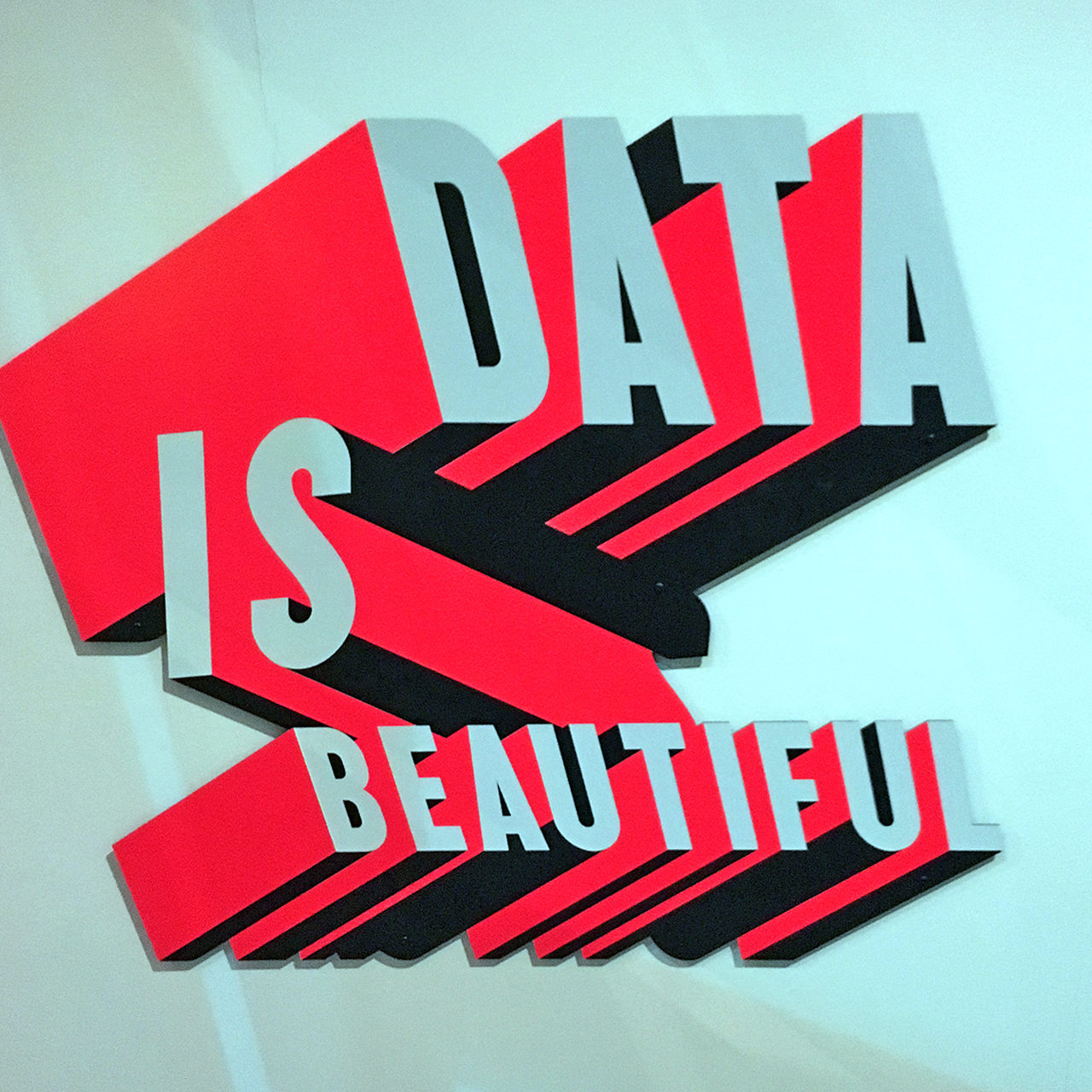Intro
Walking through the brilliant exhibition at Somerset House in London recently, I found the display to be a great reminder of how important the topic of data is in the modern world.
From its beauty as a form of art, through to its use for less than savoury gain, it opens opportunities for people and businesses. It has the threat of damage to brands, reputation and individuals alike. As such, the message behind the exhibition was clear: data is taking over, and it’s up to us to manage it well.
Big Bang Data at Somerset House
When you first enter the display, you see this global map showcasing all the physical cables that connect countries and cities across the globe. Whilst we talk about virtual networks, cloud services and the internet, ultimately this is all just a series of physical cables laid under oceans, passing data around our world.
I enjoyed exploring some of the great insights about data on display: 2002 represented a turning point for data in that, for the first time, we had more information stored in digital form than analogue. By 2007, 94% of the total global information was digitally coded information and every day we create around 2.5 trillion bytes of data.
The ‘Black Shoals: Dark Matter’ installation by Lisa Autogena and Joshua Portway was a lot of fun. This was a real-time representation of the financial markets, driven by live trading data from the world stock exchange. It was displayed on a huge curved screen hung from the ceiling looked at from bean bags on the floor like you were looking up into space at night.
Companies were represented as stars that flicker and glow in real-time as shares are traded around the world. The brightness and duration of the glow from the stars indicated the volume of the trade. It was like a data, financial markets version of the planetarium.
Nearer the end of the exhibition, the subject turned to question whether data is always right, and what it can’t tell. Whilst the opportunities with data are limitless and ever-growing, numbers can (of course) be manipulated and skewed to tell a story. You cannot use data alone, and as such, you should always leave room for subjectivity and ambiguity.
On the same topic, Jonathan Harris created a piece entitled ‘Data Will Help Us’ to highlight the positive and negative possibilities of data-based logic. For example, the print asks ‘Data will help us remember, but will it let us forget?’
The exhibition runs through to mid-March this year, and I strongly recommend anyone interested in how data is shaping our world to go. I went with my wife and 4-year-old son, and both enjoyed it immensely. It really was an impressive exhibition of our trade, represented in such an evocative and artistic medium.
Related.
See all
Cynozure research calls for stronger data leadership in US financial firms to unlock data benefits

A CLEAR™ Path: How to Foster a Robust Data Culture by Leveraging Concepts from Industrial and Organizational Psychology

Outsmarting the Bots on demand: A practical application of machine learning




